If you are looking for an effective way to secure your home and keep an eye on it, CCTV cameras may be the perfect solution for you. In this article, we will discuss everything you need to know about CCTV cameras, from their benefits and types to their installation and maintenance.
Table of Contents
Introduction
Benefits of CCTV Cameras
Types of CCTV Cameras
Factors to Consider Before Installing CCTV Cameras
Installation of CCTV Cameras
Placement of CCTV Cameras
Maintenance of CCTV Cameras
Common Mistakes to Avoid
Laws and Regulations Regarding CCTV Cameras
Conclusion
FAQs
Introduction
CCTV cameras, also known as video surveillance cameras, are used to monitor homes, businesses, and public places. These cameras transmit video footage to a monitor or recorder and provide real-time surveillance of the area under surveillance. CCTV cameras are used to deter criminals, prevent theft and vandalism, and provide evidence in case of a crime.
Benefits of CCTV Cameras
Installing CCTV cameras at your home offers numerous benefits, such as:
1. Crime Deterrence
CCTV cameras act as a deterrent to potential burglars or criminals who may be considering targeting your home. They know that their activities will be recorded and can be used as evidence against them.
2. Remote Monitoring
With CCTV cameras, you can monitor your home remotely from anywhere in the world, using your smartphone or computer. This can be particularly useful if you are away from home and want to check in on your property.
3. Evidence in Case of Crime
CCTV footage can be used as evidence in court, making it easier for law enforcement agencies to apprehend criminals and prosecute them.
4. Lower Insurance Premiums
Installing CCTV cameras can reduce your home insurance premiums, as it reduces the risk of burglary and theft.
Types of CCTV Cameras
There are several types of CCTV cameras available, including:
1. Dome Cameras
Dome cameras are small and discreet, and they are usually installed on the ceiling. They offer a wide field of view and are ideal for monitoring large areas.
2. Bullet Cameras
Bullet cameras are cylindrical in shape and are usually installed on walls or ceilings. They are weatherproof and can be used both indoors and outdoors.
3. PTZ Cameras
PTZ (pan-tilt-zoom) cameras can be remotely controlled, allowing you to adjust their field of view and zoom in on specific areas.
4. Hidden Cameras
Hidden cameras are designed to be discreet and can be disguised as everyday objects, such as clocks, smoke detectors, or even teddy bears.
Factors to Consider Before Installing CCTV Cameras
Before you install CCTV cameras at your home, there are several factors you need to consider, such as:
1. Budget
CCTV cameras can be expensive, so you need to determine how much you are willing to spend on them.
2. Purpose
What do you want to achieve by installing CCTV cameras? Do you want to deter criminals or monitor your home remotely?
3. Coverage Area
What areas of your home do you want to monitor? This will determine the number and type of cameras you need.
4. Lighting
Do you have sufficient lighting in the areas you want to monitor? CCTV cameras require adequate lighting to capture clear footage.
Installation of CCTV Cameras
Installing CCTV cameras can be a complex process, so it is recommended that you hire a professional to do it for you. A professional installer will ensure that the cameras are installed correctly and that they are working properly.
Placement of CCTV Cameras
The placement of CCTV cameras is crucial for effective surveillance. Some key areas that you should consider when placing your CCTV cameras include:
1. Entrances and Exits
Make sure that your CCTV cameras are pointed towards the entrances and exits of your home, such as doors and windows.
2. High-Risk Areas
Identify high-risk areas, such as the front door or garage, and install cameras in those areas.
3. Blind Spots
Identify blind spots where intruders may be able to hide from the camera, and install additional cameras to cover those areas.
4. Privacy Considerations
Make sure that your cameras are not pointed towards private areas, such as bedrooms or bathrooms, as this could be a violation of privacy laws.
Maintenance of CCTV Cameras
To ensure that your CCTV cameras are working properly, you need to perform regular maintenance. Some maintenance tasks include:
1. Checking the Cameras
Check the cameras regularly to ensure that they are working properly and that they are pointing in the right direction.
2. Cleaning the Cameras
Clean the cameras regularly to remove any dirt or debris that may be blocking the lens.
3. Updating the Firmware
Keep your cameras up-to-date by regularly updating the firmware. This will ensure that your cameras are protected against any security vulnerabilities.
Common Mistakes to Avoid
When installing and using CCTV cameras, there are some common mistakes that you should avoid, such as:
1. Placing Cameras Too High or Too Low
Make sure that your cameras are placed at the right height to capture clear footage.
2. Not Testing the Cameras
Test the cameras before you start using them to make sure that they are working properly.
3. Not Securing the Cameras
Make sure that your cameras are properly secured to prevent them from being tampered with or stolen.
Laws and Regulations Regarding CCTV Cameras
When installing CCTV cameras, it is important to be aware of the laws and regulations regarding their use. Some key considerations include:
1. Privacy Laws
Make sure that you are not violating any privacy laws by installing CCTV cameras.
2. Data Protection Laws
Make sure that you are complying with data protection laws by ensuring that your footage is stored securely and only accessible to authorized personnel.
Read also Choosing the Right Alarm System for Your Home
Conclusion
CCTV cameras are an effective way to keep your home secure and monitor it remotely. By considering the factors discussed in this article, you can choose the right type of CCTV camera, install it properly, and maintain it effectively. Remember to be aware of the laws and regulations regarding the use of CCTV cameras, and avoid common mistakes that could compromise your security.
FAQs
How much does it cost to install CCTV cameras at home?
The cost of installing CCTV cameras at home varies depending on several factors, but can range from a few hundred to several thousand dollars.
What is the best type of CCTV camera for home use?
The best type of CCTV camera for home use depends on your specific needs and budget, but some popular options include dome cameras, bullet cameras, and wireless cameras.
Can I install CCTV cameras myself?
Yes, you can install CCTV cameras yourself, but it's important to have a basic understanding of wiring and electrical systems, and to follow all safety precautions.
How long can CCTV footage be stored?
The length of time that CCTV footage can be stored varies depending on several factors, including the type of system, the amount of storage capacity, and local laws and regulations.
Are there any legal requirements for installing CCTV cameras at home?
Yes, there may be legal requirements for installing CCTV cameras at home, depending on your jurisdiction. It's important to check with your local authorities to ensure that your use of CCTV cameras is legal and compliant with any relevant laws or regulations.
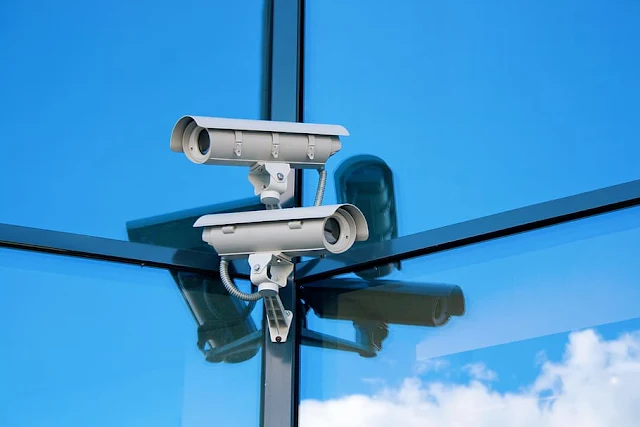

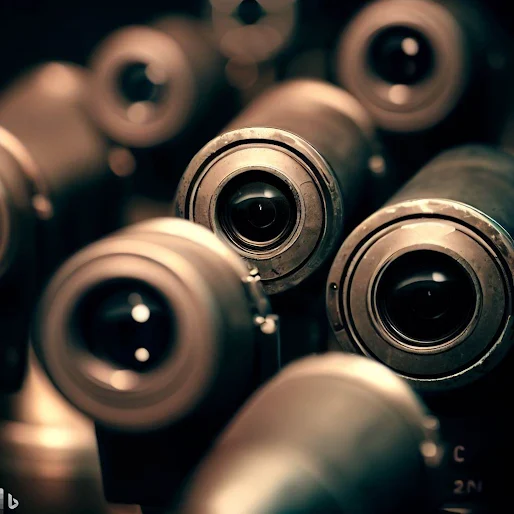
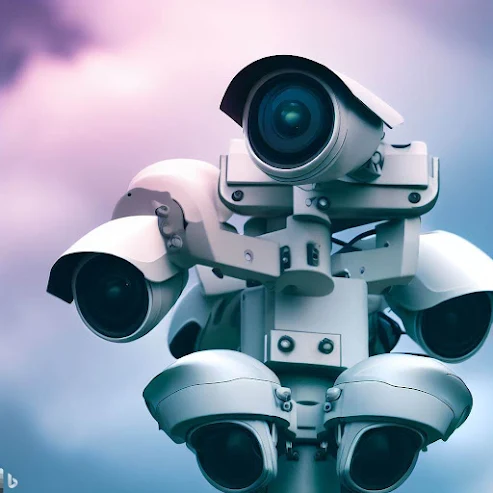

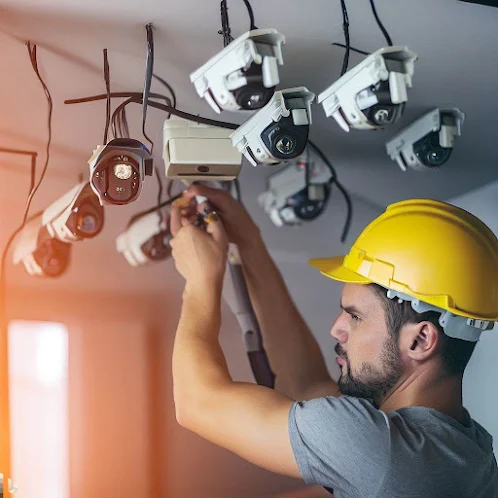
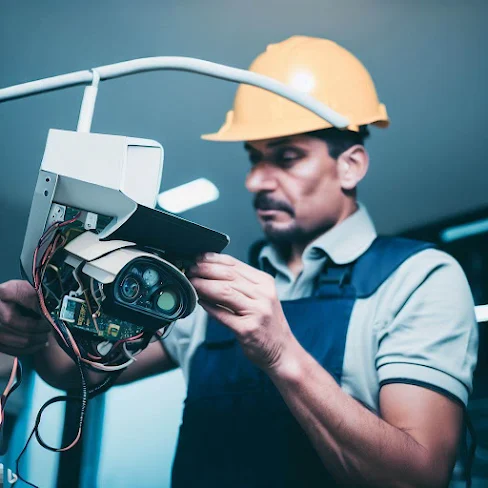
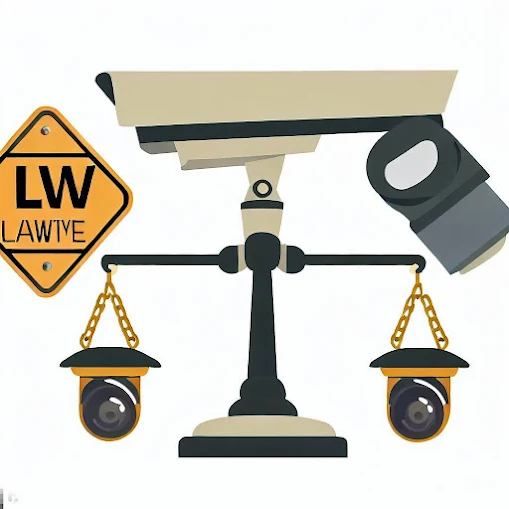
Comments
Post a Comment